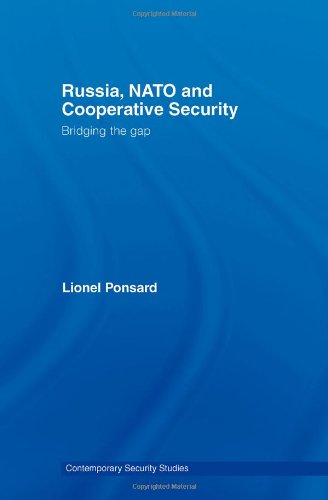

Most ebook files are in PDF format, so you can easily read them using various software such as Foxit Reader or directly on the Google Chrome browser.
Some ebook files are released by publishers in other formats such as .awz, .mobi, .epub, .fb2, etc. You may need to install specific software to read these formats on mobile/PC, such as Calibre.
Please read the tutorial at this link. https://ebooknice.com/page/post?id=faq
We offer FREE conversion to the popular formats you request; however, this may take some time. Therefore, right after payment, please email us, and we will try to provide the service as quickly as possible.
For some exceptional file formats or broken links (if any), please refrain from opening any disputes. Instead, email us first, and we will try to assist within a maximum of 6 hours.
EbookNice Team

Status:
Available0.0
0 reviewsThis book explores mutual common ground between Russia and NATO and the potential to move beyond cultural differences, particularly in political culture.
Lionel Ponsard clearly demonstrates how cooperative security could serve as a means to bridge the gap between two supposedly antagonistic entities: NATO and Russia. He skilfully shows that by building confidence between the two parties about each other’s intentions, cooperative security can regulate attitudes that might otherwise lead to misperception.
Focusing on the peculiarity of NATO-Russia relations, this unique book adopts the Russian approach to these relations, drawing on Ponsard’s deep expertise. Three clear parts of this volume articulate this original work: the definition of the Russian identity, Russia’s attitude to NATO and the question of cooperation in Russia-NATO relations. The analysis of the Russian identity sheds some light on what happened to this relationship in the past several years and offers key lessons for today’s considerations of the nation. Difficulties that have arisen since the end of the Soviet Union until the creation of the NATO-Russia Council in 2002 are also stressed and interpreted, adding to an excellent analysis of one of the key areas in contemporary security.
This book will be of great interest to all students of NATO, security studies, Russian studies and international relations in general.